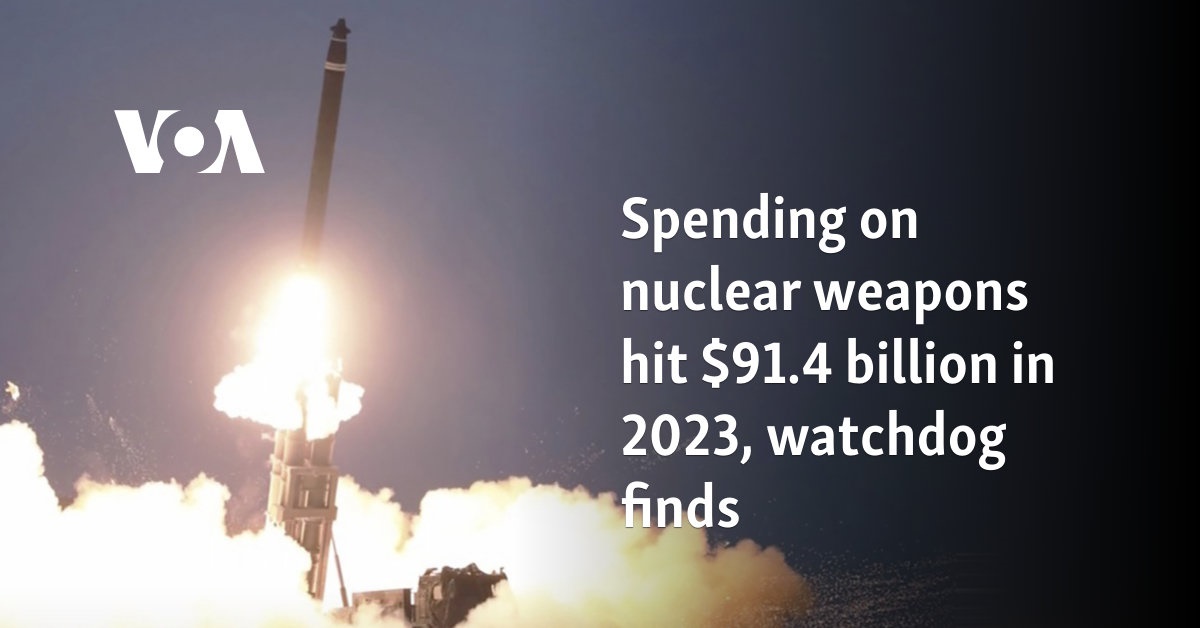
According to recent reports from the Stockholm International Peace Research Institute (SIPRI), global spending on nuclear weapons reached a record high of $91.4 billion in 2023. This represents an increase of 13% compared to the previous year. The United States accounted for the largest portion of this increase, with a budget of $51.5 billion dedicated to nuclear weapons.
China, the second largest spender on nuclear weapons, invested $11.8 billion in its arsenal last year. Russia followed closely behind with a budget of $8.3 billion.
The United Kingdom spent $8.1 billion on its nuclear weapons program, while France, India, Israel, Pakistan, and North Korea collectively spent $11.6 billion.
Despite the increasing spending on nuclear weapons by various countries, there is growing resistance to these arms globally. The International Campaign to Abolish Nuclear Weapons (ICAN) has warned about the dangers of a new arms race and defiance of the spirit of the Treaty on the Non-Proliferation of Nuclear Weapons.
China, in particular, is undergoing a significant expansion of its nuclear capabilities. The country had maintained a relatively small arsenal of about 200 warheads but has been shoring up that stockpile rapidly in recent years. According to SIPRI's report, China could have as many intercontinental ballistic missiles as the United States or Russia by 2030.
The expansion of nuclear arsenals comes amid geopolitical tensions and conflicts around the world, including Russia's invasion of Ukraine and the Israel-Hamas war. These developments have raised international anxiety about nuclear conflict risks due to Russia's increasingly aggressive behavior.
G7 leaders have condemned Russia's blatant breach of international law and threats of nuclear weapons use. Notable holdouts at a recent Ukrainian peace conference included India, Indonesia, Mexico, Saudi Arabia, and South Africa.
ICAN Executive Director Melissa Parke has warned about the risks of nuclear conflict due to these tensions. She noted that $335 billion in outstanding contracts are related to nuclear weapons work.
Despite the growing concerns and spending on nuclear weapons, there is also a notable upward trend in global resistance to these arms. The world's nine nuclear-armed states spent a combined total of $91.4 billion last year, or nearly $3,000 per second.


